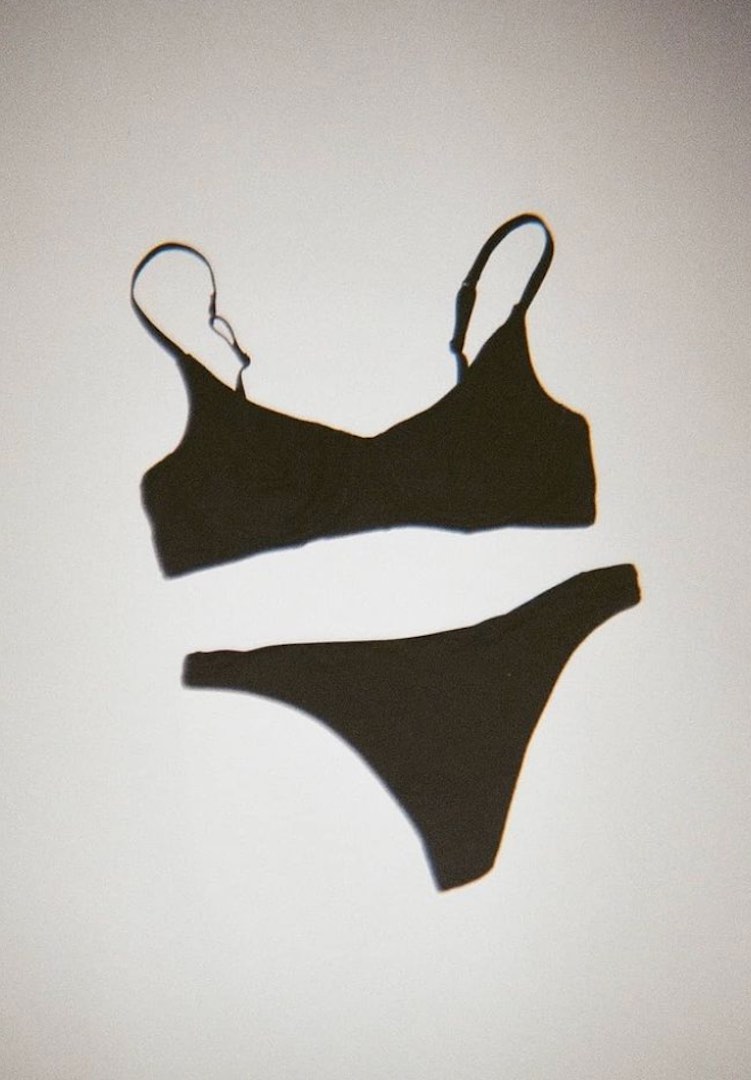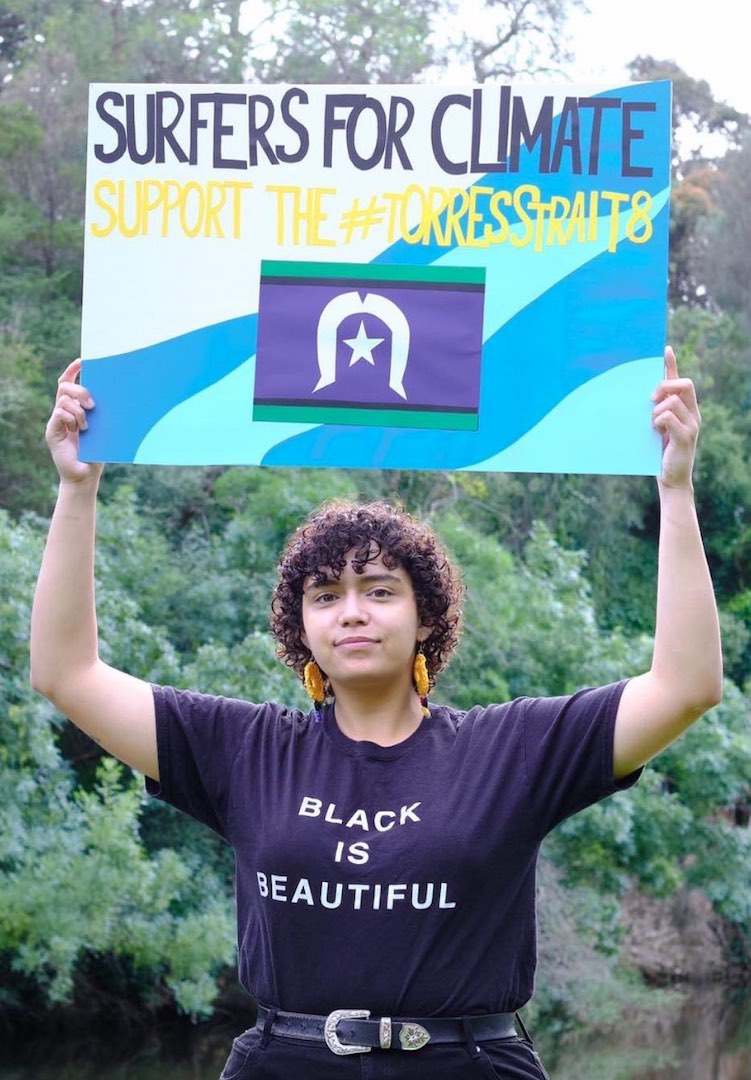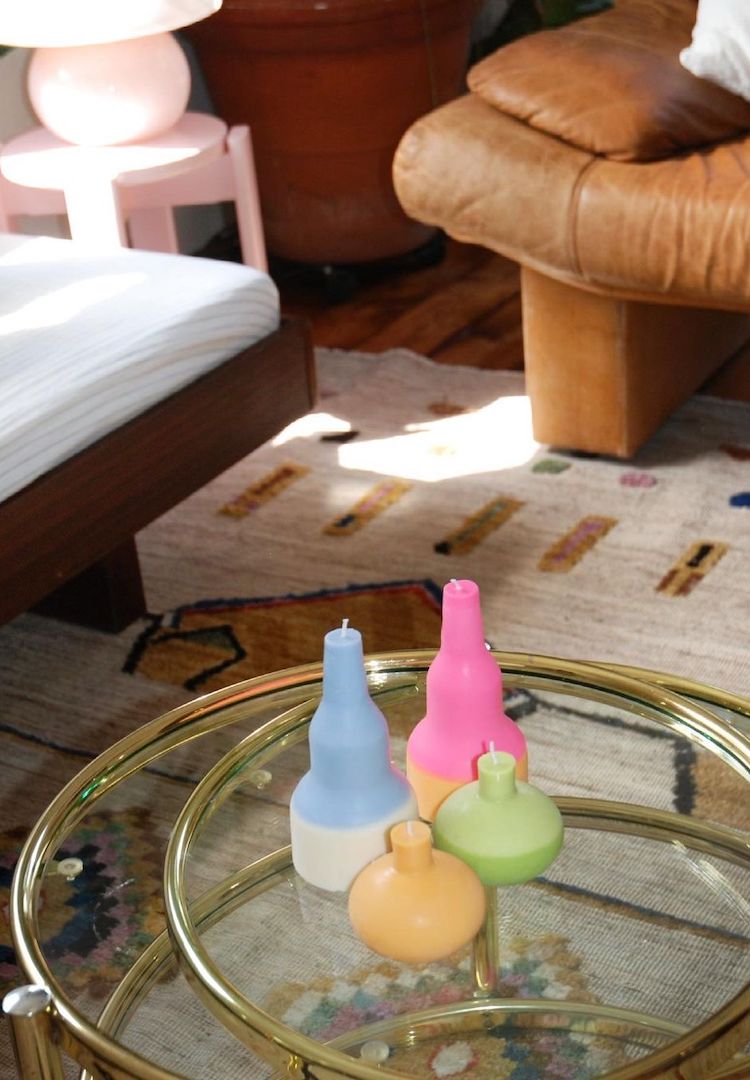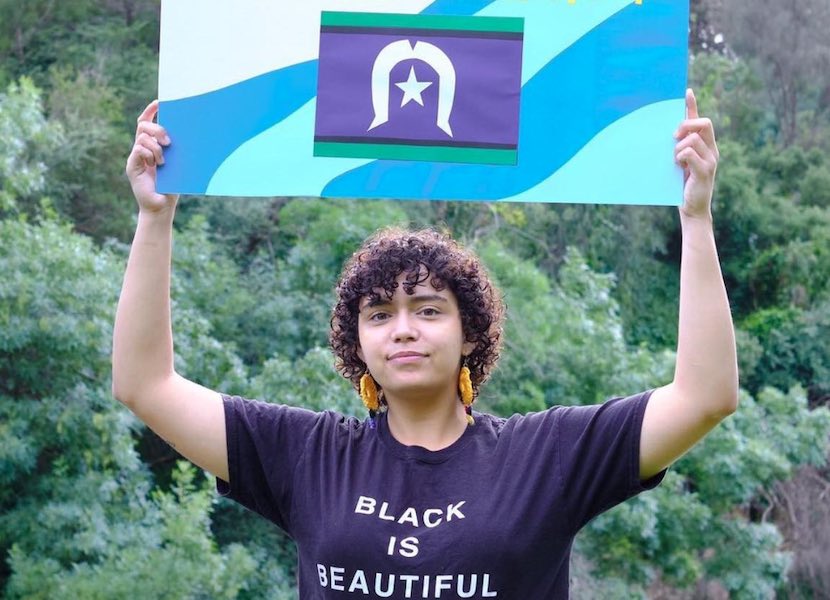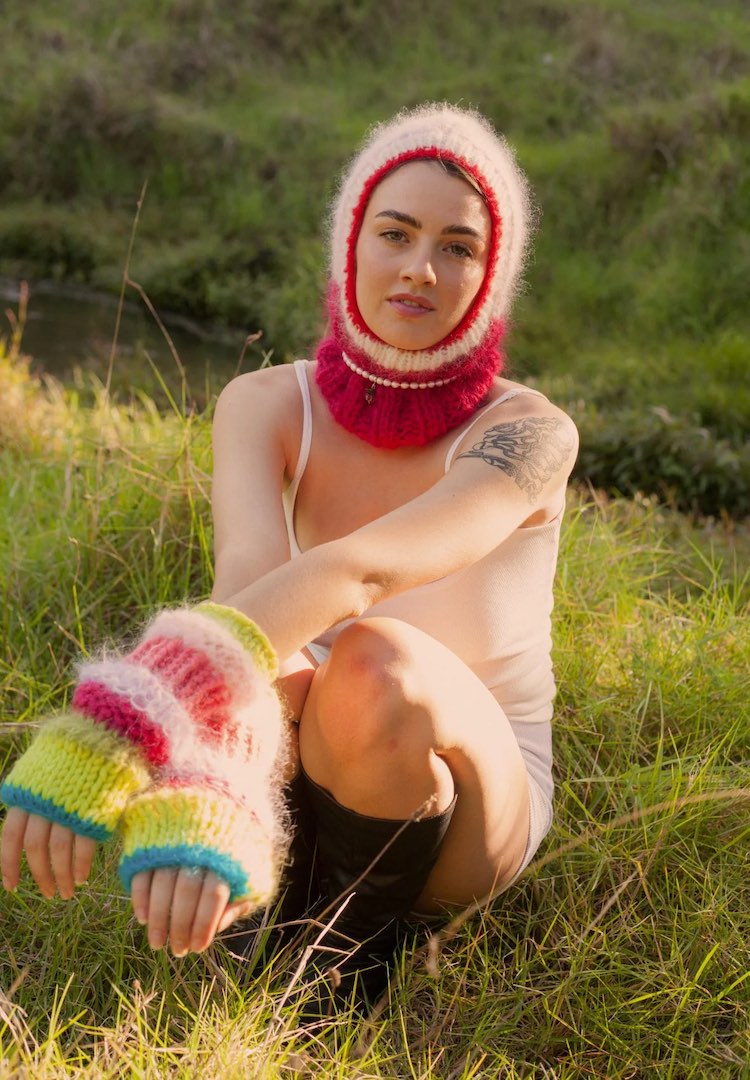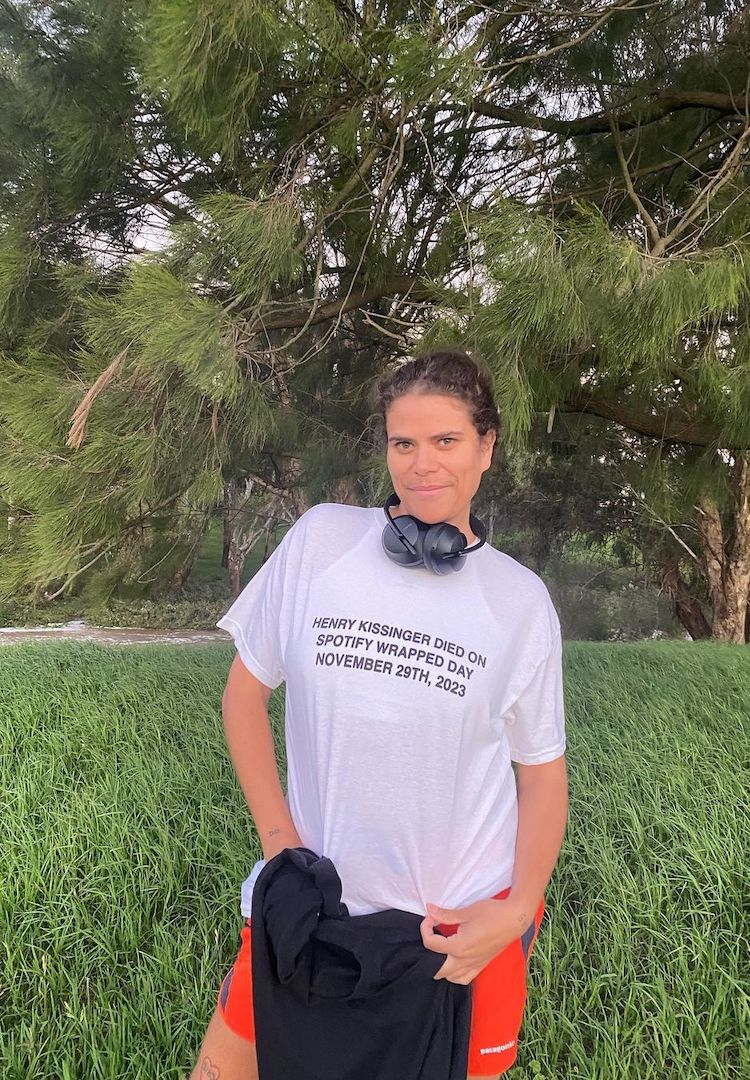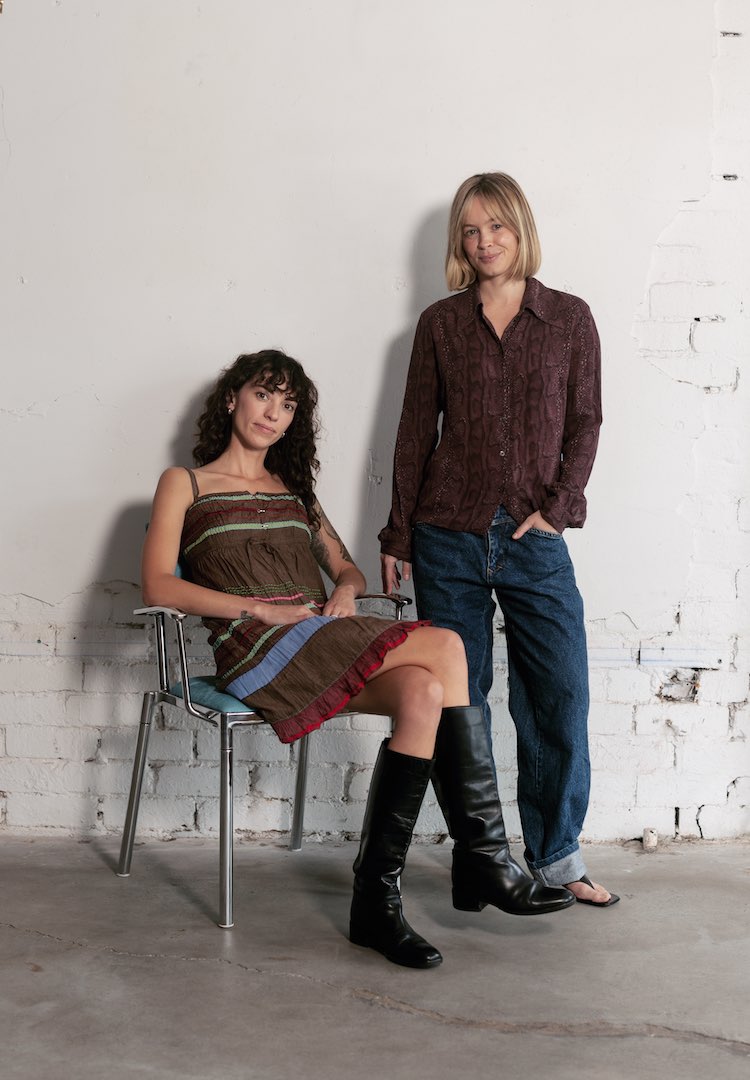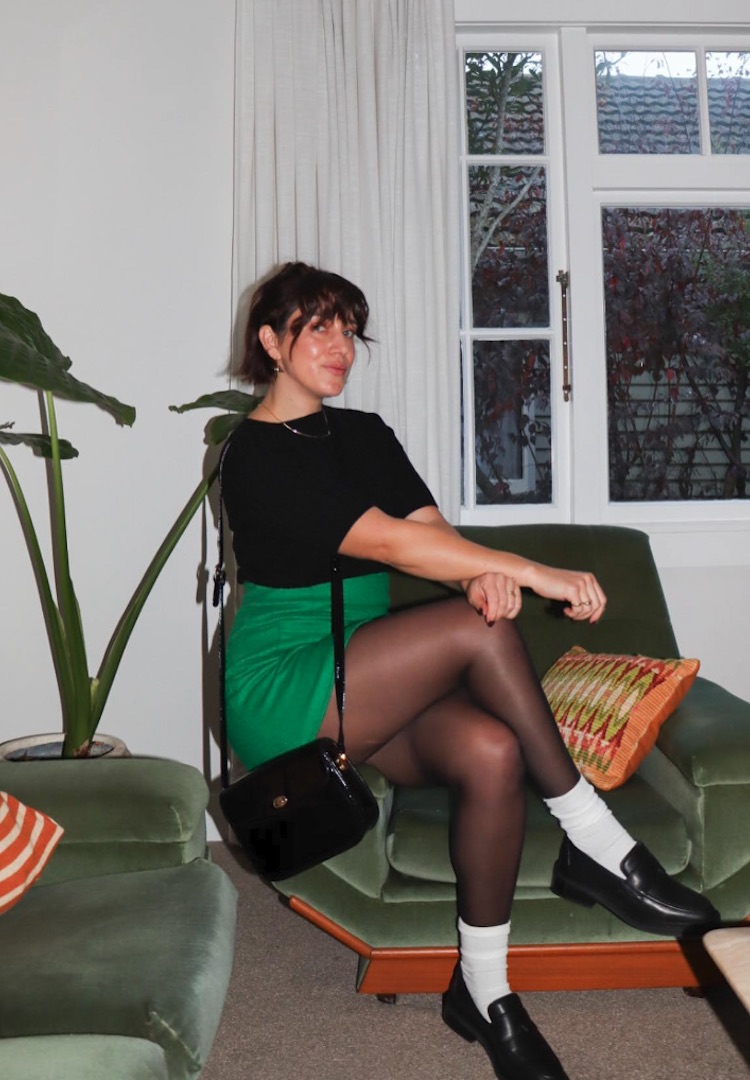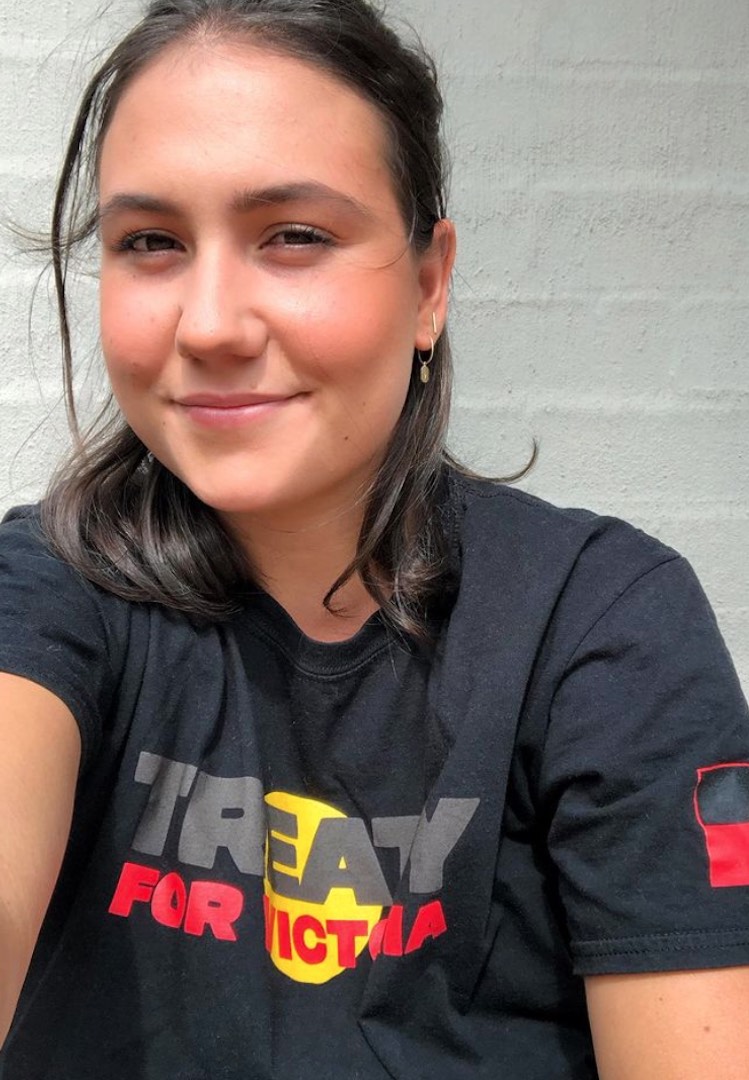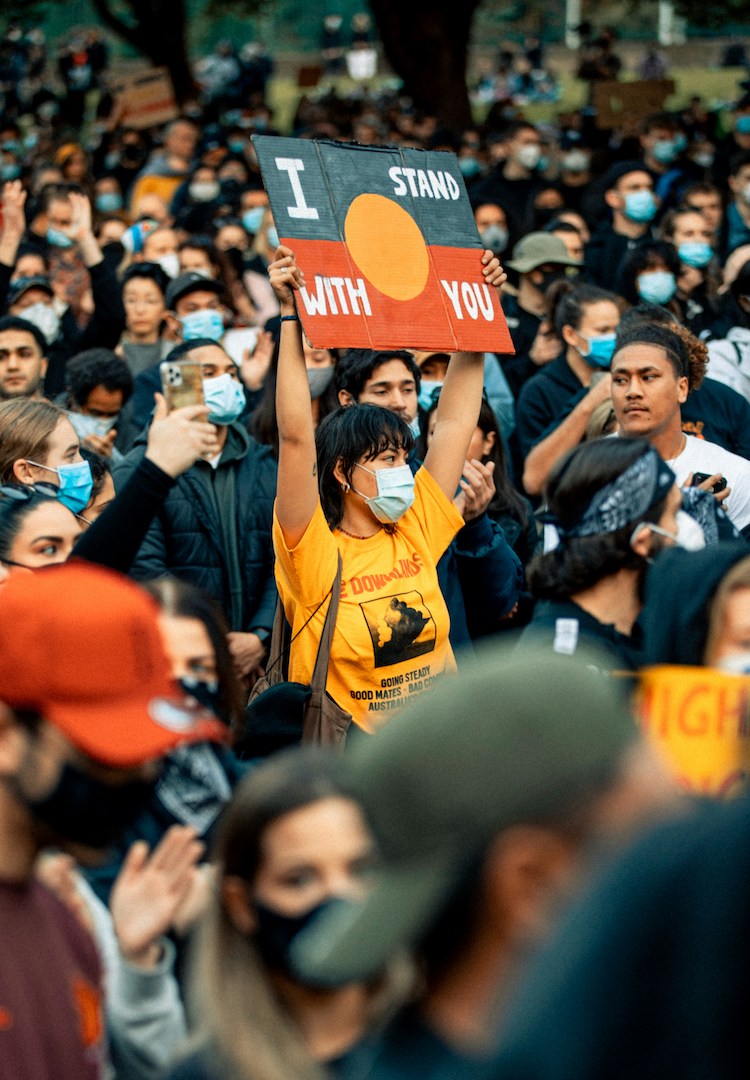Coverage of the climate crisis is overlooking First Nations’ stories, but this initiative is seeking to change that
IMAGE VIA @ourislandsourhome/INSTAGRAM
words by taneshia atkinson
“Our cultural responsibility is to keep our family strong… We have survived for thousands of years on this land, and we will survive for thousands of years to come.”
Fashion Journal is proud to continue an ongoing partnership with First Nations Fashion and Design aimed at highlighting and amplifying First Nations voices, talent, culture and stories across the industry. Fashion Journal acknowledges the Aboriginal and Torres Strait Islander peoples as the first Australians and traditional custodians of the lands on which we live, learn and work. We pay our respects to their Elders past, present and emerging.
It’s no secret that fashion is one of the most polluting industries across the world and subsequently one of the leading causes of climate change. From production to supply chains and right up to the frenetic turnover of trends, fashion is responsible for almost 10 per cent of all greenhouse gas emissions.
According to National Geographic, greenhouse gases contribute to climate change by trapping heat in the earth’s atmosphere which leads to extreme weather and rising sea levels, with some data suggesting that sea levels in the Torres Strait could be rising at twice the global rate.
For more content like this, tap through to our Life section.
Many big businesses and world leaders, particularly within the fashion space, are now stepping up and making important changes to take responsibility, raise awareness and address the leading causes contributing to climate change. Unfortunately, many are still failing to include the voices of the people most impacted.
First Nations people make up less than five per cent of the total human population and support about 80 per cent of the global biodiversity, yet are the most disproportionately impacted by climate change, and are among the first to face its direct consequences.
White privilege has shaped the approach to sustainable and ethical fashion and many environmental activists are still not including the voices of First Nations people.
Without the inclusion and amplification of First Nations voices, experiences, and solutions – particularly of those on the frontlines of climate justice – fashion’s coverage of climate change risks further perpetuating colonialism.
To gain some insight into the national campaign for climate justice, I spoke to two people on the frontlines who have connections to islands in the Torres Straits.
Danny Billy, a Warraber Island man from the Kulkulgal Nation, is one of eight claimants forming the Torres Strait Eight who has taken the Australian Government to the United Nations Human Rights Committee for its inaction over climate change.
You can read the claimants’ demands of the Government here. Waniki Maluwapi of Boigu Island works for the Our Islands Our Home national campaign as a community organiser and digital storyteller, raising awareness of the Torres Strait Eight and encouraging community action.
“I joined the Torres Strait Eight as a claimant to support the future of my people. We have been here for over 60,000 years, and we would like to see our islands survive for many thousands more,” says Danny.
Danny joined the campaign in 2019, and tells me about some of the significant environmental changes he has witnessed as a result of climate change, adding “this fight is not just for me, it’s for my family, and it’s for the cry of our Elders”.
With the government only installing band-aid solutions to protect the Torres Strait Islands against rising sea levels, there are fears that island communities will be forced to leave their homes.
Danny explains that the connection to his island home extends beyond the physical. “Our fight for climate justice is intertwined with the survival of our culture, traditions, and language.
“We don’t want to lose that. If we have to leave our island and move to the mainland, we lose our connection. We lose our customs, family ties and culture. We would have to adapt to Western culture. That is not our culture”.
But the connection for Danny extends even deeper than this. Danny tells me about a heart-wrenching fear he has; he’s worried the rising waves will soon inundate his parents’ graves as other community members have experienced.
“This fight is really close to my heart. I lost both of my parents who are buried here on Warraber. They are buried in the cemetery which is next to the waterfront on the northside of the island.
“My grandparents had to pick up the remains of their grandparents from out of the reef… I don’t want that to happen to me. I don’t want to have to pick up my parents’ remains from the reef.
“I don’t want my nieces and nephews to pick my remains up in the future. I don’t want to lose my culture… I don’t want to lose my identity. I don’t want the future generations to lose their identity,” he says.
“Our cultural responsibility is to keep our family strong… We have survived for thousands of years on this land, and we will survive for thousands of years to come.”
These powerful sentiments were echoed by Waniki. “We are an extension of our island home, and our ancestors. Our existence is intertwined. Losing our island home means we lose our ancestors, our history, all the fights that were there before us that made us the people that we are today, and the land that has provided for our people since time immemorial.
View this post on Instagram
“It’s hard to put into words what [losing our islands] would mean. It’s like we are losing a family member. I pray that through our advocacy there are solutions, so we don’t have to leave and lose everything that makes us who we are.
“I’m a Torres Strait Islander woman, born and raised on mainland, but my father was born in Zenadh Kes (Torres Straits) and raised on our homeland Boigu,” Waniki tells me.
Boigu is a low lying island and has been drastically affected by climate change. Waniki shares that her village used to be the shape of a crocodile, however, due to continued erosion the shape over time has changed.
Waniki describes the impacts of monsoon season throughout the Torres Straits, telling me how strong winds and high seas are exacerbated by an already rising sea level.
“I can’t speak as someone who has lived on Boigu firsthand, but I see the way that climate change affects our villages and ecosystems, and a lot of families have relocated and moved down south.”
As a digital storyteller and organiser, much of Waniki’s role is centred around using social media to raise awareness of the impacts of climate change across the Torres Straits, and to ensure Zenadth Kes is the leader of its own narrative.
“We aren’t helpless people, we are doing the work, but we just need people to listen,” says Waniki. “Our role is to help amplify the voices of community and raise awareness for what is going on.”
Waniki shares that some people still don’t know where the Torres Strait is, let alone the differences in culture, and this reflects the historical exclusion of Zenadth Kes’ voice.
“More and more we are being heard and included in the conversation, but within the climate space specifically and also more broadly within Australia, we have been historically excluded from the conversation,” says Waniki. “People don’t realise that much like our Pacific neighbours, we are experiencing the harsh impacts of climate change too”.
But the efforts of the campaigners and the strength of Zenadth Kes have been widely felt, with petitions calling on the Australian Government to support and protect Zenadth Kes garnering over 20,000 signatures.
For the first time in history, the Torres Strait Islands were mentioned by name in the recent Intergovernmental Panel on Climate Change (IPCC) Report. And a representative of the national campaign, Tishiko King, a Kulkalaig woman from the island of Masig, attended the United Nations Climate Change Conference (COP26) last year in Glasgow, raising important international awareness of the situation.
“We do believe our fight is out there already, we just need someone to take action against what causes climate change,” Danny and Waniki share.
How to support Our Islands Our Home
You can stay connected with Our Islands Our Home on Facebook and Instagram and further support the campaign by sharing posts to raise awareness.
In addition, there is a petition on the campaign website which calls on the Government to support the people of the Torres Strait to protect their islands from climate change.
On the campaign website, there is a postcard you can send to the local member of Parliament for the Torres Strait, where you can share why you think the Australian Government should protect Zenadth Kes from climate change and honour Torres Strait Islanders’ right to their island homes. The message will be printed and delivered in person.
“Join in the fight for the survival of the longest living culture and people in the world,” says Danny, “We need to unite and join together to make the world a better place.”
To find out more about Our Islands, Our Home, head here.

